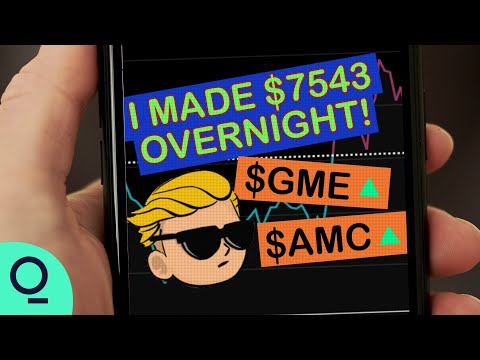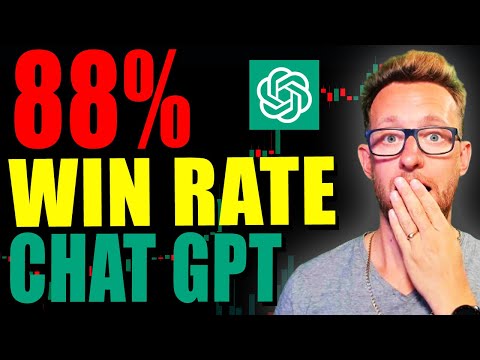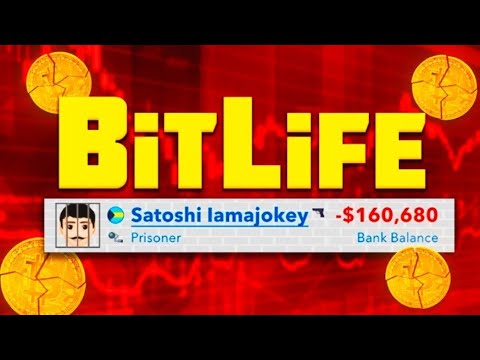GameStop Was Nothing Compared to What’s Coming for Wall Street

The pandemic has affected everyone in different ways. Some pass the time by baking. Homemade sourdough bread. Do I need to say more? Some chose to binge-watch Netflix. It's your game. Or maybe you started a garden oasis in your backyard.
Next I'm going to put my lettuces in. But for millions of others... I'm going to be posting stocks that will [expletive] boom.
They wanted to uproot the financial industry. Let's just stock it on up and take $15,000. Here's a stock that can change your life. I see a stock going up and I buy it and I just watch it until it stops going up. And then I sell it.
I have gained over $3 million. I want some free money. I don't think you can overstate the online communities of social media's influence on financial markets. A large group of inexperienced investors who discussed their plans on social media platform Reddit have shaken up the stock market in a big way. The stock that everybody's talking about right now is GameStop.
Video game retailer GameStop has set to continue their head-spinning ascent today. The revolutionaries on Reddit are spanking Wall Street's ass. The more these stocks go up, the more the big guys are getting creamed and losing billions of dollars. This isn't a wealthy person's game anymore. Anyone can play it.
I took up a little bit of a new hobby and I am interested in day trading. As an investor nowadays, you don't have to look a specific way. You don't have to wear specific clothes. You don't have to be doing it from a trading floor on Wall Street, in a high-rise building in Downtown Manhattan. The narrative of what's driving the markets is no longer being held in secret offices in New York and Boston of privileged people talking to other privileged people.
It's right out in the open. It's on Twitter, it's on Reddit. From brokerage apps to Discord channels and subreddits to TikTok finfluencers. One of the last holdouts in the world of disruption, finance, is next in line.
Investing should be as ubiquitous as shopping online. That's Vlad Tenev, the CEO of Robinhood the online brokerage app, talking about how he wants his app to disrupt the world of stock trading like Amazon disrupted the world of home shopping. And I think that speaks to exactly the mission that a platform like Robinhood has, which is to democratize investing. Robinhood was started in 2013 by Vlad Tenev and Baiju Bhatt in, where else, Silicon Valley, as an alternative to the big brokerages, but with one big difference. As they were building this social network around finances for people, they realized that there was a gap in the market and that free trading could become something that they could bring to the markets.
They could disrupt the industry. While no-fee trading is industry standard today, it was unheard of when it was first introduced. The online brokerage industry was really innovative when they came on the scene 10, 15 years ago but they kind of stopped innovating, where you haven't seen those commissions come down beyond five or six or $7. Robinhood think that by offering zero commission that they're going to push people onto this platform.
And on top of no-fee trading, the customers Robinhood was courting have been long-overlooked in the world of finance. So the typical customer of a Charles Schwab, for example, is putting a lot more money in that brokerage account than the typical customer at Robinhood. Even today, with all of its popularity the median account size is about $240. The Fidelitys and the Schwabs and the E*TRADEs of the world, they look down their nose at those kind of accounts. I don't want a $1000 account.
They're just a headache. I want a $100,000 account. And this is key here, right? Because the thing about Robinhood that's different than every other single brokerage platform is how easy it is to use. The design of the Robinhood app, really has in mind a user who might be coming at this absolutely cold. The fonts are very well-sized. The shapes, the colors, all of that is something that the founders of Robinhood paid really close attention to.
And by creating an interface that catered to a newer investor, they were able to gather a pretty healthy group of customers. And by 2019, they had about 10 million customers. Those 10 million customers were a huge success story for Robinhood, but no one could have predicted its explosion after the arrival of COVID-19.
Remain indoors, to the greatest extent. And 100% of the non-essential workforce must stay home. What we saw when the pandemic hit was the growth of Robinhood users absolutely turbocharged. And oddly, you saw this surge in interest in stock trading. Then they saw the absolute surge in 2020 in customer growth.
And now, by many accounts, they have more than 20 million customers, which is pretty extraordinary. So the next step for them is to figure out how to monetize those users and how, even with their small account sizes, to get them to grow with the company and, as it releases more products, come along with them. Robinhood would become one of the COVID economy's breakout successes. Robinhood traders, as they're called,
became the shorthand explanation for the frenzy of often speculative retail investing after the pandemic lockdowns. Kids wake up in the morning, they go on Robinhood. They're in the shower, they check Robinhood. Kids are learning how the stock market works at 18, while they're at school, checking their phones between classes, because notifications pop up telling them what their stocks are doing that day.
With these new tools, Millennials and Gen Z are investing in the market in ways their parents could've never even dreamt of. That is key when we talk about the divide between older and younger generations. Is that the younger generation was exposed to so much more information and tools at their disposal, to do what they want in the market.
The older generations, you never had the technology or the cost structure that you could play the markets, like you can today. So you were stuck with giving your money to a professional investor and paying them a fee to do it. When I speak to young kids, they tell me, "I'm making mistakes. I'm losing money. I'm not a perfect investor, but I'm 18. And by the time I'm 30, which will be 10 years from now, I'm going to have interacted with the markets for a decade."
And so, it's a learning experience, more so than anything else. And you can look at it and you can say, wow, that's risk-taking, that's dumb. But if you could possibly shave 10, 20 years off your working life versus adding five years, I don't think you can fault people for that.
But Robinhood is only part of the puzzle. Sure. You can trade on it. But without research, information and data, you're just blindly throwing darts at different stocks and hoping to strike it rich. Wall Street, forever, has always run on what we now call narratives or memes, people telling rumors to each other, have been around for 100 years. On Wall Street, information is its own currency.
Historically, either you had it or you didn't. And the people who had it, had a huge advantage. In the past, those narratives and memes didn't have a network effect. It would be one person telling another person, over the phone. In fact, when I broke into this business in the eighties a lot of people used to complain that they weren't on the call list to get those ideas.
[Narrator] Social media changed all of that. Fast forward to 2021. That's being done on the internet now.
And that's being done on Discord and Twitter and Stocktwits and Reddit. And the impact is very similar, but orders and orders of magnitude larger. As social media has played a bigger part in our lives, it's also played a bigger and kind of more important role in how people find investing ideas online and on these platforms.
How do those ideas spread? On TikTok Yes, that TikTok. People aren't just going to it for sea shanty videos. The #PersonalFinance hashtag on TikTok has garnered 3.5 billion views from its 1 billion monthly active users. By comparison, videos found under the #Cooking and #HealthTips hashtag have 2.6 and 2.1 billion views, respectively. The trajectory of Robinhood and Tiktok were literally on par.
What happened in the stock market this week? So the word of the week is "expectations". It's absolutely essential that you guys understand the risks of shorting. And Kayla Kilbride and Kyla Scanlon are two of those financial influencer TikTokers, also known as "finfluencers". I think people still care about fashion.
They care about culture, but it's also like, there's this big behemoth thing called the stock market that we really don't know a whole lot about. And it's gatekept behind industry. And so people want to unpack that. And so my audiences, a lot of them are younger investors who are looking to hone their skills.
Ticking right up. Kayla and Kayla are two of the more, let's say, professional TikTok influencers. The Tesla ARK Bitcoin Biotech risk cluster. I have been trading since high school and it was a really interesting way for me to fill out my decision-making frameworks and to think about thinking. And I think that the more that we can have people thinking about finance, the better that we're going to progress as a society.
I think it's a huge gap in our educational system. If you're going to buy an option for a stock you think is going to go up, it's a call. So think of it like this. I made the options video where I was like, "Options are just like shopping". Rumor has it that this palette's about to go up in price.
So if I come in tomorrow, can I still buy it at said price? And a ton of women just attacked that video and were like, "You explained things so much better than my boyfriend or my professor," or "I could sit and listen to you all day." And I was like, "This is what I was looking for." But TikTok's algorithm does not reward calm and measured videos about responsible investing. It rewards this.
Watch this video for 30 seconds and you'll be rich for the rest of your life. I try not to say the A word, the A-L-G-O word, because TikTok listens to it. The algorithm does impact how you feel. You do notice which videos do better versus which videos do worse.
How do you catch someone's attention in less than 60 seconds? And how do you make it something that they're like, "I need this in my life"? Nearly impossible to do that in 60 seconds. But the people who perfect it, are the people that you're going to watch and are going to stick around. And where people are sticking around, Reddit. And it's nearly countless subreddits about finance. And by far, the biggest one of those is wallstreetbets. There's a lot of social media platforms out there, but Reddit is the social media platform for finance.
Places like wallstreetbets is where it all goes down. Started in January, 2012, it wasn't long before wallstreetbets adopted a 4chan-like etiquette, leading to their tagline, "Like 4han found a Bloomberg Terminal". We had all these unexplained stock moves and we would be grasping for why stock XYZ jumped 20% in a day. And you would look at wallstreetbets and you would see people there talking about buying options in that stock and it sort of squared the circle, so to speak, and started making sense. And it was at that point that it was like, wow, we have to start paying attention to this.
Some people on the platform really spend tons of time. And others are just looking for entertainment and to have a little bit of fun. Effectively gambling or looking for an outlet, trying to make a little bit of money. Then on top of all of that, there were stimulus checks. Now, clearly this money's going to people who need to use that to eat, to live.
But there's a lot of people who used this money to invest in the stock market. And it's not just stock tips. People quote, unquote, YOLO their entire life savings or stimulus checks on a single stock. They post what is called gain and loss porn, screen-grabbing staggering hits and misses on stocks for the entire community to see. I am about to lose everything.
And while some of the people on wallstreetbets are novice investors, the community contains multitudes. In one respect, what it did show us, among these network groups is, they are very sophisticated. They're not a bunch of ignorant people talking to other ignorant people.
And this is where the pieces of the puzzle all come together to wreak havoc on Wall Street for a solid week in early 2021. It's pretty clear that the combination of more people having retail brokerage accounts and trading apps and more people being stuck at home looking for some kind of entertainment and some kind of community online, came together in this very singular way. What came together is GameStop. Let's go back to the beginnings of what happened with GameStop, a couple of years ago. On the boards like Reddit and Stocktwits, a lot of people were talking about GameStop as being attractive value. Some of them are even Wall Street alumns, who left the industry and now still have access to tools that they can use to improve their financial wellbeing and make very good decisions.
And I think Roaring Kitty is a perfect example of that. GameStop is one of the most compelling asymmetric opportunities in the market today. Really, I don't understand how you can disagree with that. At the same time that this crowd was talking it up, the hedge fund institutional crowd didn't like this stock at all. And it had the largest short interest of any stock in the New York Stock Exchange going into late 2020. Short selling is a bet that a stock price will fall and it's a fairly simple concept.
An investor borrows a stock and then sells it. The investor is betting on buying the stock back later for a lower price, before returning it to the original owner, pocketing the price difference. What a short seller would tell you is that they almost act as a policeman in financial markets or they're, at least, looking for companies that aren't what they say they are.
And that can range anywhere from an outright fraud that some short sellers try to expose to just a company that's not worth as much as investors think it is. The problem is, if the stock price rises, the short seller has to come up with the money to buy the stock back. And the more it rises, the more it costs. And that's what's called a short squeeze. And the hedge fund Melvin Capital was on the wrong end of that squeeze. Melvin Capital lost over 50% of its money in the month of January alone, just from being caught in the short squeeze of this stock.
This is where the disruption comes in. One of the most wild stories you're ever going to see, GameStop shares absolutely going nuts. In less than a year, the company's stock has jumped from less than $3 a share to almost $350. Cheers, everybody! Roaring Kitty has turned $50,000 or so investment into some $14 million. Wh-wh-whaaaa. Investors all over social media use the free trading app Robinhood to wreak havoc on Wall Street.
They're actually piling on into some of these stocks to really hurt the professional short sellers. And they all used Reddit, Twitter, TikTok and Discord to tell one another to keep buying and quote, "hold the line" and not sell GameStop. People are getting cheerleaded for jumping in, buying at the highs, they're saying keep going. And it was working too.
Until... Thursday morning, the trading app Robinhood sent out this Tweet, "In light of current market volatility, we are restricting transactions," including GameStop. People were really angry.
Robinhood was supposed to allow the regular people to play the same game these big boys are playing. But instead we were all taken for schmucks and they screwed us. Shares of GameStop are jumping again, now that retail investors are being allowed to buy shares of the stock. But what we learned, is that when people organize online, they have the ability to disrupt the market. And it was a big sign that ivory walls of institution aren't as powerful as, maybe, the institutions thought them to be. I don't know if pumping up GameStop was the best use of billions of dollars, but I think that, as a signal to society, it was pretty interesting and powerful.
The GameStop saga was so impactful that both Vlad Tenev and Roaring Kitty were called in to testify before Congress to clarify each of their roles in the saga. One thing that's emerged from the congressional hearings is that they're interested in how retail brokerages make money and whether they're keeping the best interests of their customers in mind. But it's pretty fuzzy, as far as, what they would actually do as a result. While the frenzy around GameStop eventually subsided, it didn't take long for retail investors to find other areas to invest their money. Take a look at Bitcoin going bananas over the weekend.
Bitcoin forms a brand-new, all-time-high. It was after GameStop started to drop that we saw Bitcoin really go up to over 60,000. How much further does this rally have to run? It's compelling to say that money shifted from one venue to the other.
Well, correlation doesn't equal causation. There's a chart out there showing an inverse correlation on meme stocks going down and cryptocurrencies going up. There's definitely an aspect where people are making money on stocks and then moving... They're agnostic. They're not hedge funds. They can invest wherever the hell they want.
It's a classic sort of momentum trade, they're going to wherever the winners are and they're willing to jump on and ride it. So whether it's meme stocks like GameStop, meme coins like Dogecoin, or entirely new ways to invest in art like NFTs, the new kind of retail investor is making its presence known. Over the next 10, maybe 15 years, you're going to continue to see, whether by choice or by force, that baton go from older generations to younger generations.
I don't think any single app is going to be the thing that disrupts. I think people are the disruptors How people get ideas about what to invest in has become increasingly entwined with social media. And as social media companies govern more and more of our lives, the fact that now, they're tied in more intimately to people's wallets, is something that we might want to understand better. Usually what disruption, I think, means is technology comes in, whether it's blogs to the newspapers, or online retailing to brick and mortar.
They come in and they're in the same business, but they just do it at such a gigantic cost savings, that it causes everybody to switch. Well, that's the risk that happens here, is that it's so much cheaper to just manage your own money. We're not there yet, but costs and conveniences are moving in that direction. So I'd say Wall Street, you haven't been disrupted yet but you could be in the coming years. And that the final chapter on this story hasn't been written.
2021-06-23 05:50


